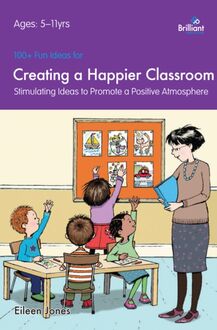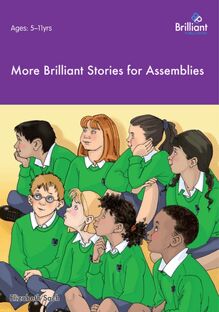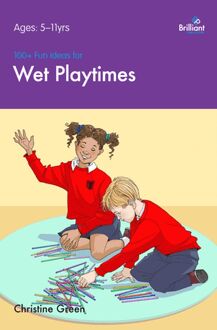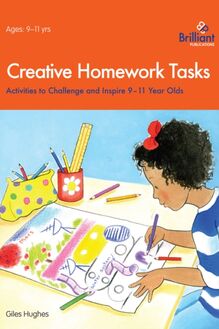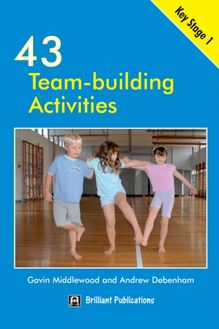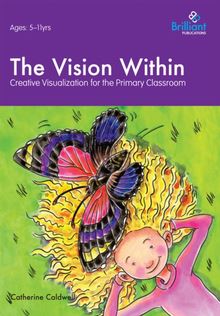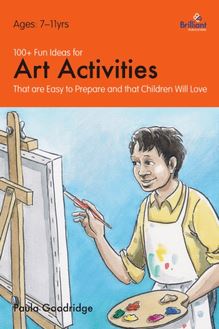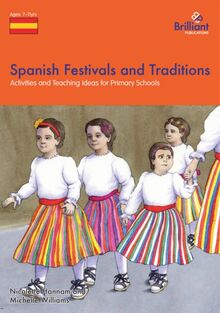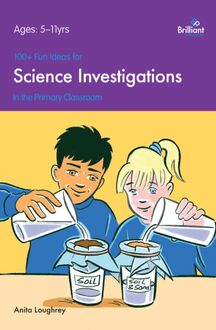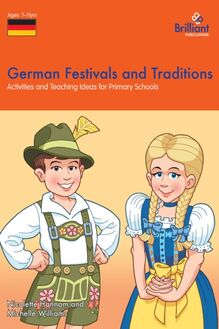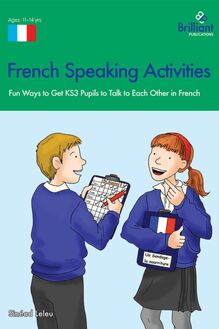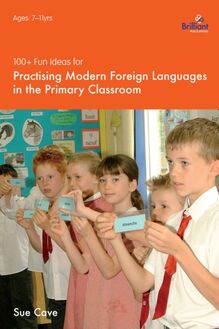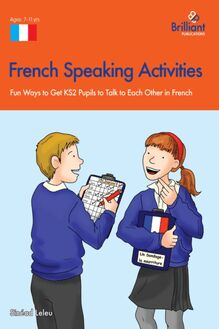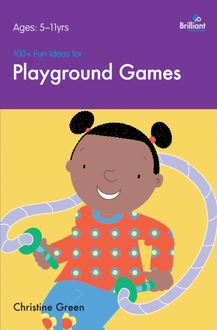-
 Univers
Univers
-
 Ebooks
Ebooks
-
 Livres audio
Livres audio
-
 Presse
Presse
-
 Podcasts
Podcasts
-
 BD
BD
-
 Documents
Documents
-
- Cours
- Révisions
- Ressources pédagogiques
- Sciences de l’éducation
- Manuels scolaires
- Langues
- Travaux de classe
- Annales de BEP
- Etudes supérieures
- Maternelle et primaire
- Fiches de lecture
- Orientation scolaire
- Méthodologie
- Corrigés de devoir
- Annales d’examens et concours
- Annales du bac
- Annales du brevet
- Rapports de stage
La lecture à portée de main
Vous pourrez modifier la taille du texte de cet ouvrage
Découvre YouScribe en t'inscrivant gratuitement
Je m'inscrisDécouvre YouScribe en t'inscrivant gratuitement
Je m'inscrisEn savoir plus
Vous pourrez modifier la taille du texte de cet ouvrage
En savoir plus

Description
Sujets
Informations
| Publié par | Andrews UK |
| Date de parution | 17 décembre 2013 |
| Nombre de lectures | 0 |
| EAN13 | 9780857475923 |
| Langue | English |
| Poids de l'ouvrage | 1 Mo |
Informations légales : prix de location à la page 0,0650€. Cette information est donnée uniquement à titre indicatif conformément à la législation en vigueur.
Extrait
Title page
French Speaking Activities
Fun Ways to Get KS3 Pupils to Talk to Each Other in French
Sinéad Leleu
Publisher’s information
2013 digital version by Andrews UK Limited
www.andrewsuk.com
Originally published by Brilliant Publications
Unit 10, Sparrow Hall Farm, Edlesborough, Dunstable, Bedfordshire, LU6 2ES
Website: www.brilliantpublications.co.uk
Tel: 01525 222292; Fax: 01525 222720
The name ‘Brilliant Publications’ and the logo are registered trade marks.
Written by Sinéad Leleu
Illustrated by Frank Endersby
Cover illustration by Emily Skinner
© 2010 Sinéad Leleu (text); Brilliant Publications (design)
First published 2011
The right of Sinéad Leleu to be identified as the author of this work has been asserted by herself in accordance with the Copyright, Design and Patents Act 1988.
Certain sections are photocopiable. These sections have the phrase ‘This page may be photocopied for use by the purchasing institution only’ written at the top of each. They may be photocopied by the purchasing institution or individual teachers for classroom use only, without consent from the publisher and without declaration to the Publishers Licensing Society. The material in this book may not be reproduced in any other form or for any other purpose without the prior permission of the publisher.
Introduction
One of the main aims of children learning a modern foreign language is to enable them to communicate in that foreign language. Due to various factors, such as large class size, lack of time or teacher fluency, this is easier said than done, in particular, where oral communication is concerned. French Speaking Activities contains over 50 fun ways to get pupils to talk to each other in French. It consists of user-friendly photocopiable activities that facilitate oral communication. The activities encourage pupils to practise speaking autonomously, leading to more pupil speaking time and less teacher speaking time. Pupils also get to practise reading and writing along the way.
Teacher tips
Surveys It is imperative that pupils have already been introduced to the theme/key language points of the survey. Use French Speaking Activities to practise coursework, not replace it. Before giving out copies of the survey to each pupil, explain exactly what is expected of them, for example: Must they only use French? Are they allowed to circulate? Must they use full answers / a tick / a ‘cross’ etc? Hand out the survey sheets and read through it with the pupils. Demonstrate with a pupil. As pupils complete their surveys, you can move around the class to help and/or observe. As an extension activity, individual pupils could report back their ‘findings’, eg Alex joue au foot. Sam joue au basket. David joue au tennis etc. A teacher-led class survey could also be done at the end. This could be done on a chart on the board, eg Combien de personnes jouent au foot? Combien de personnes jouent au basket?
Role-plays It is imperative that pupils have already been introduced to the theme/key language points of the role-play. Before giving out the copies of the activity to each pupil, explain the context of the role-play and exactly what is expected of the pupils, eg work in pairs or groups, act out the role-play for the class etc. Hand out the role-play activity and read through it with the pupils. If there is a task, such as filling in blanks or matching words to pictures, allow the pupils to work on this in their pairs or groups. Correct this before they begin preparing their role-play. Give the pupils a fixed time to prepare, but be flexible if pupils obviously need more or less time. As the pupils practise, you can move around the class. If some pairs/groups finish practising early, get them to reverse roles. If the pupils are performing for the class, use filming terms, such as ‘Action!’ and ‘Coupé!’ to make it more exciting. Do not correct mistakes during the performance and ensure that you praise effort.
Presentations Introduce the theme/key language points of the presentation. Before giving out the photocopy to each pupil, explain exactly what is expected of them, eg Will all pupils be expected to speak in front of the class? Hand out copies of the presentation sheet and read through it with your pupils. Allow them at this stage to pencil in or circle if necessary. Give pupils time to complete and prepare their presentation, during which time you can circulate. Encourage pupils to read as little as possible when presenting to the class, particularly in the case of more confident pupils. Do not correct pupils during the presentation and, most importantly, ensure that you praise their efforts.
Quizzes/Multiple choice questions Introduce the theme/key language points of the quiz. Before giving out the photocopy to each pupil, explain exactly what is expected of them, eg Must they do the quiz alone or in pairs? Must they do it themselves and/or on each other? Hand out copies of the quiz. Let the students know it is a quiz with ‘right or wrong’ answers, but you will not be giving the answers until the end! Once completed, correct the quiz with the entire class. As an extension activity, the quiz could be used as a role-play, eg a TV quiz show with a quiz master and a contestant.
Making sentences Introduce the theme/key language points of the activity. Before giving out the sheet to each pupil, explain exactly what is expected of them, eg Do they have to cut out the words? Do they have to write out the sentences? Do they have to make a certain number of sentences? Hand out the photocopy and read through it with your pupils. Explain that most words can be used more than once. Give them some examples of sentences. This activity could predominantly be a reading and perhaps writing activity. However, pupils tend to be so proud of being able to produce whole sentences on their own that even weaker pupils like to share with the class.
Games Introduce the theme/key language points of the game. Before giving out the sheet to each pupil, explain exactly how the game is played and if they need to complete blanks before beginning. Hand out a photocopy to each pupil and read through it with the class. If there are blanks to be filled in, give your pupils time to do this. Once completed, correct as a whole class. Demonstrate to your pupils how the game is played.
… And of course, have fun!
Les sondages (Surveys)
Comment ça va? (How are you?)
This section may be photocopied for use by the purchasing institute only
Go around your classroom and ask your classmates their names and how they are.
Comment tu t’appelles? (What’s your name?)
This section may be photocopied for use by the purchasing institute only
Go around your classroom and ask your classmates their names, ages and where they live.
Les animaux (Animals)
This section may be photocopied for use by the purchasing institute only
Find out what animals your classmates have.
Est-ce que tu as … ? Oui, j’en ai. Non, je n’en ai pas.
Les mois (Months)
This section may be photocopied for use by the purchasing institute only
Go around the class and find out in which month your classmates’ birthdays are.
Quand est ton anniversaire? Mon anniversaire est en … .
Les couleurs (Colours)
This section may be photocopied for use by the purchasing institute only
Find out what is the favourite colour of eight people in your class.
Quelle est ta couleur préférée? Ma couleur préférée est le … .
Sur huit élèves, la couleur préférée est le __________ .
Les boissons (Drinks)
This section may be photocopied for use by the purchasing institute only
Find out what drinks your classmates like and dislike.
Est-ce que tu aimes … ? Oui, j’aime … . Non, je n’aime pas … .
La nourriture (Food)
This section may be photocopied for use by the purchasing institute only
Find out what food your classmates like and dislike.
Est-ce que tu aimes … ? Oui, j’aime … . Non, je n’aime pas … .
Les glaces (Ice-cream)
This section may be photocopied for use by the purchasing institute only
Find out which flavour of ice-cream your classmates prefer.
Quelle est ta glace préférée? La glace … !
La glace préférée est la glace __________ .
Les transports (Transport)
This section may be photocopied for use by the purchasing institute only
Find out how your classmates get to school.
Comment vas-tu à l’école? Je vais à l’école … .
‘La plupart d’élèves dans ma classe vont à l’école __________ .
(The majority of pupils in my class go to school by … .)
Les jours (Days)
This section may be photocopied for use by the purchasing institute only
Find out which days your classmates like and dislike.
Quel est ton jour préféré? Le vendredi.
Quel est ton jour le moins préféré? Le lundi.
Le sport 1 (Sports 1)
This section may be photocopied for use by the purchasing institute only
Find out from five of your classmates what ball sports they play.
Est-ce-que tu joue … ?
-
 Univers
Univers
-
 Ebooks
Ebooks
-
 Livres audio
Livres audio
-
 Presse
Presse
-
 Podcasts
Podcasts
-
 BD
BD
-
 Documents
Documents
-
Jeunesse
-
Littérature
-
Ressources professionnelles
-
Santé et bien-être
-
Savoirs
-
Education
-
Loisirs et hobbies
-
Art, musique et cinéma
-
Actualité et débat de société
-
Jeunesse
-
Littérature
-
Ressources professionnelles
-
Santé et bien-être
-
Savoirs
-
Education
-
Loisirs et hobbies
-
Art, musique et cinéma
-
Actualité et débat de société
-
Actualités
-
Lifestyle
-
Presse jeunesse
-
Presse professionnelle
-
Pratique
-
Presse sportive
-
Presse internationale
-
Culture & Médias
-
Action et Aventures
-
Science-fiction et Fantasy
-
Société
-
Jeunesse
-
Littérature
-
Ressources professionnelles
-
Santé et bien-être
-
Savoirs
-
Education
-
Loisirs et hobbies
-
Art, musique et cinéma
-
Actualité et débat de société
- Cours
- Révisions
- Ressources pédagogiques
- Sciences de l’éducation
- Manuels scolaires
- Langues
- Travaux de classe
- Annales de BEP
- Etudes supérieures
- Maternelle et primaire
- Fiches de lecture
- Orientation scolaire
- Méthodologie
- Corrigés de devoir
- Annales d’examens et concours
- Annales du bac
- Annales du brevet
- Rapports de stage
